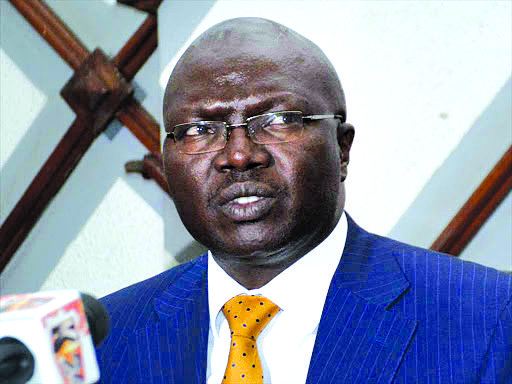State issues warning over Sh6.8b coffee debt waiver

Sharing false information on the Sh6.8 billion coffee debts risk prosecution, the government has warned.
At the same time stern measures to be adhered to before the cash is released to the beneficiaries by the National Treasury and Planning Ministry before September 30, 2024, or the end of the current coffee year.
Co-operatives and Micro, Small and Medium Enterprises Development Cabinet Secretary Simon Chelugui said the Cabinet when approving the coffee debt waiver cautioned that any organisation or individual planning to swindle farmers of their hard-earned cash will be subjected to the full force of the law.
“It is important to note that Cabinet approval emphasised that any falsification may lead to prosecution of those found culpable. We therefore urge any organisation that advances farmers’ money to ensure it provides the correct information and handover with the same to the Commissioner for Co-operative Development by the end of today,” he said.
Information to be shared by the creditors include the name of the financier, the principal amount granted, the purpose of the loan or advance, interest charged, amount of loan repaid and outstanding balance.
Lending institutions
Chelugui was speaking during a consultative meeting with coffee co-operative societies’ creditors – Commercial banks, Savings and Credit Cooperative Organisations (Saccos) and government lending institutions –New Kenya Planters cooperative Union and Commodities Fund at the Kenya Bankers Sacco Hall in Nairobi.
The CS emphasised that the exercise calls for honesty and openness on the part of the co-operative leaders and their creditors while preparing the debts and avoid exaggeration.
He confirmed that the objective of the debt waiver is to relieve coffee farmers’ burden on outstanding loans and advances given to coffee co-operative societies by financial institutions and other lenders. The waiver will be applied across all the The debt waiver is to relieve coffee farmers’ burden on outstanding loans given to coffee co-operative societies by lenders. INSET: Co-operatives and MSMEs Development CS Simon Chelugui.
The government, the Chelugui added, will form a multi-agency validation team to analyse the submitted claims from co-operative societies and prepare a report to the National Treasury for release of funds.
Public Service, Performance and Delivery Management Cabinet Secretary Moses Kuria last week stated the Sh6.8 billion debt waiver approved by Cabinet will be paid directly to farmers’ accounts.
“It is up to the lenders to subsequently look for the farmers to pay up through a Paybill or whatever,” Kuria said in a statement.
But Chelulgui clarified that the debts will be paid to the lenders to clear loans farmers have borrowed.
Most coffee firms that operated mills and marketing agents advanced farmers loans, a situation government claims some of the loans were being advanced by institutions not regulated by the key institutions mainly the Central Bank of Kenya (CBK) and Sacco Societies Authority (Sasra).
“Huge debts are part of the key challenges facing the coffee subsector killing farmers’ morale and thus leading to low production,” Chelugui explained.
In the 1987/88 crop year Kenya achieved its peak production of 129,000 tonnes but due to a myriad of bottlenecks, this is now oscillating between 40,000 tonnes and 50,000 tonnes. “Major effects of the huge debts include cartels preying on farmers’ produce and proceeds,” Chelugui said.
The validation team will thoroughly check whether the loans in question were processed through co-operative societies and not individual walk-in members and the advances must have been fixed and approved by members in a duly convened general meeting.
Equally the same must have been approved by the Commissioner for Cooperative Development. Other parameters to guide the validation process include a list of benefitting members in case of advances to members as loans or farm inputs or for cooperative society infrastructure or operating overheads.
Sale proceeds
For all loans given, there must be a proof that the farmers’ coffee was given as collateral (coffee hypothecation) for recovery from sale proceeds and loans will be considered outside the previous debt waiver. This means that for those co-operatives that benefited from the previous waiver, any debt incurred during that period will not be considered.









